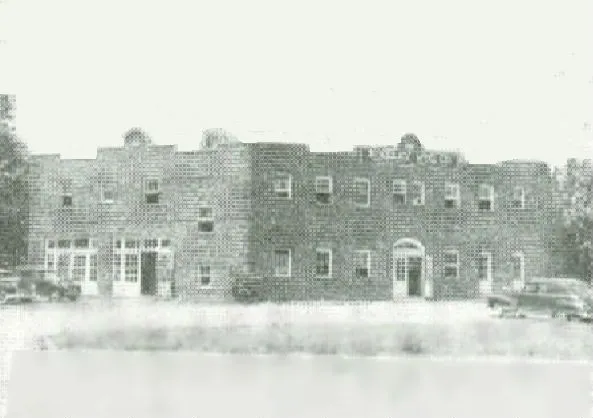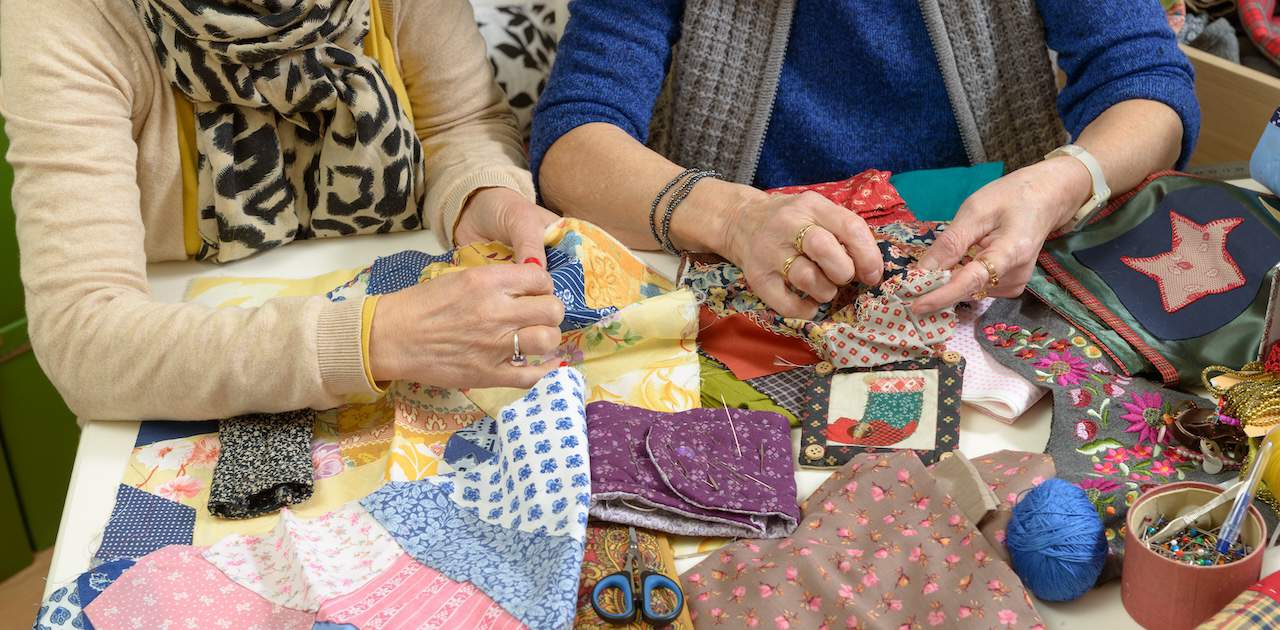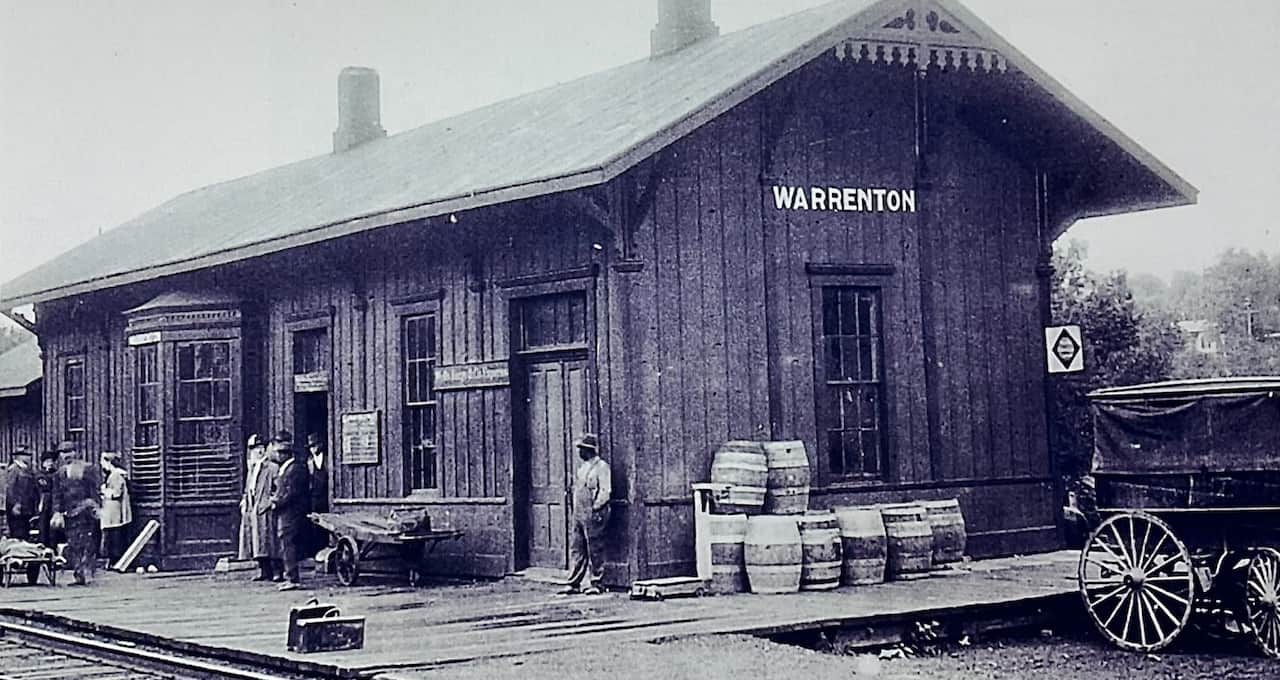This summer’s exhibit at the Warren County Historical Society Museum from July 5 September 8 features an exhibit highlighting the history of the Binkley Manufacturing Company. The Binkley Company has a very interesting history it was on April 4, 1933 that the company began operations in a small building at the intersection of Highway 47 and Old Highway 40, now Veterans Memorial Parkway. Imo’s Pizza and Legacy Drugstore occupy this lot at the present time.
William J. (Bill) Binkley and his wife, Lil, came to Warrenton in 1933. He had a business in Chicago that failed during the depression. Binkley was 32 years old and broke at the time, but he had a dream, ambition, and lots of “know-how”. Mr. Binkley started Binkley on April 4, 1933. He knew sheet metal and layout work, so he rented a building in Warrenton for $7.50 a month and began to make stove pipe and adjustable elbows. This building was owned by McGee Service. Mr. Binkley hired a few local men to help him with production. When they had made up a batch of stovepipe and elbows, they would take the back seat out of his old Chevy, pile all they could get into the car and take them to St. Louis. Once there, they would sell the merchandise just in time for payday.
In the fall of 1933, the young business was moved to a slightly larger building. In April of 1934, the business moved again to what was then known as the Sievert Ice Plant. The building was purchased, the company incorporated, and the Binkley Manufacturing Company was underway. The small company started making furnaces. Binkley did not have the necessary machinery to make a round furnace, so he made his furnace more in the shape of a square. He had an emblem on the front of the furnace that read: Binkley furnaces, Built on the Square. The manufacture of furnaces proved to be a worthwhile and money making project. Still today many of the old homes around Warrenton and neighboring towns may have “The Binkley Furnace”.
Along with the furnace business, Binkley got into the manufacture of power line and electric line equipment. Binkley made a lot of roller die machines and the company was noted for taking on hard-to–fabricate jobs; jobs that no one else wanted to try. These customers remembered Binkley when they had other work of a more conventional nature. Interesting enough, the first drill press the company had was made by an employee, Lon Swarts, from a small motor he had removed from his washing machine.
The Iron Product Company for Lacrosse, Wisconsin, consolidated with The Binkley Company in 1940 and moved into a new building. After the machinery from Iron Products arrived by rail, it was cleaned up, painted and positioned in the new machine shop and foundry. About the time the foundry got started, the company got into the building of component parts for over-the–road trailers.
The employees had just gotten settled in their new building when the country found themselves in World War II. All employees were “frozen on the job”. You couldn’t move to another factory or job unless the War Labor Board said you could. Wages were frozen at about 49-one half cents per hour. The Wright City plant began operations in 1941 and many of the war products were manufactured and assembled at this operation.
Binkley contributed a lot to the war effort. The company made a roller die machine for C–47 planes. Truck parts were made for Fruehauf Army trucks. Pump impellers and other much-needed castings were made for fire-fighting equipment. This equipment was installed at sea on some of the old “Battle Wagons” the United States had from World War 1. They didn’t have incendiary bombs during World War I so these ships had to have these pumps on board to take care of this new type of threat. They also made parts for B-25 bombers, mine detectors, torpedo rings, and various other needed parts for the Navy.
During the years of 1941 through 1945, the company was producing exclusively for the National Defense Program and War Effort. The Wright City plant began operations in 1941 and many of the war products were manufactured and assembled at this operation. During the years of 1941-1945 the company was producing exclusively for the Nations Defense Program and War effort.
When the war ended, it became evident that converting to products for civilian use called for more expansion. The “ Y “ plant ( Highway 47 and 40 junction produced traverse rods, picnic boxes, office partitions, acoustical suspensions, grocery shopping carts, and even material for a building in Washington and Warrenton, Missouri.
In 1947, the foundry was moved to Wentzville, MO. The people of the city helped build the building in order to bring manufacturing to their city. The building served as a foundry and machine shop for about six years. The product line of the company changed from high line equipment, pumps, and pipe fittings to a full line of over-the-road trailer fabrication parts, including aluminum landing gears and aluminum castings.
In 1950, the company mailed their first catalog to the truck body, truck trailer industry. The business from this industry grew and accounted for 60 percent of Binkley’s total volume in1958. In 1953, the company purchased the Ely Walker Plant in Warrenton to house the welding department and the landing gear manufacturing. They also constructed a building containing 84,000 square feet to house the expanding roller die operations. The late 50’s saw the development of landing gear in conjunction with the rocket and missile program where the gear was used for stabilizing jacks.
In September 1959, a St. Louis group purchased the assets of The Binkley Manufacturing Company. The company’s name was changed to The Binkley Company and Aaron Fischer became the Chairman of the Board of Directors. Under the new management, the
company continued to grow. The company’s sales grew to $8,500,000 in 1963. This growth was partly associated with concentration in three areas of marketing:
1) the Truck Trailer Industry
2) the Building Product industry
3) the Custom Roll Forming for industry in general.
The Building Products Industry was a new division that specialized in the selling of products to the commercial building industry. This included siding and roofs for factories, schools, malls, etc. ‘This division no longer exists at the company we know today.
In 1966 an addition was added to the Warrenton plant. This addition added 106,000 square feet to the facility, or a 40 percent increase in area. Binkley personnel designed the building and many of the company’s own products were used in the addition. It was also in 1966 that Bill Binkley, the founder, passed away.
Beginning in 1966, the company began to concentrate its efforts toward a predominant truck/trailer focus. Binkley became the largest landing gear manufacturer in the United States and, in addition, introduced new products such as tandem sliders and suspension systems.
In 1991, the Holland Hitch Company in Holland, Michigan purchased The Binkley Company. The addition of the Binkley Company to the Holland Hitch organization brought together two major forces in the transportation industry.
SAF acquired the HOLLAND Group on December 18, 2006, becoming one of the world’s only global suppliers of trailer and heavy duty powered vehicle systems and components. Today the company is a valuable asset to Warrenton and Warren County.
This story was provided by the Warren County Historical Society, which is funded by donations and run by volunteers. Information listed is from the collection of Randy and Karen Roetemeyer who recently donated Binkley items to the Warren County Historical Society and Museum.
The Museum is located at 102 W. Walton in Warrenton, and is open from 10 to 4 p.m. Thursday, Friday and 1 to 4 p.m. Sunday.
For more information, to attend an event or to make a donation, call 636-456-3820 or email museum@warrencountymohistory.com.
In 1991 the Holland Hitch Company in Holland, Michigan purchased The Binkley Company. At that time, Holland Hitch employed 800 people worldwide at facilities throughout the United States, Canada, Australia, Germany, Japan, and Malaysia. They are manufacturers of fifth wheels, pintle hooks, landing gears, and kingpins for the heavy duty and light commercial transportation industry. The addition of the Binkley Company to the Holland Hitch organization brought together two major forces in the transportation industry.
In June of 1996 a new state-of-the-art manufacturing facility was opened in Warrenton. The new 120,000 square foot building represented the ongoing commitment to the Warrenton area and the truck trailer industry by the Binkley Company and the Holland Group. That year, Holland Binkley Company remained the world’s largest producer of truck trailer landing gear.
In 1999 The Holland Group purchased the Neway Anchorlock International Company headquartered in Muskegon, Michigan. This acquisition made the Holland Group a major market force in air ride suspensions and pneumatics for the transportation industry.
TODAY – A new Company and a new beginning.
SAF-Holland
Forming a leading global supplier of value-added trailer, tractor and truck components and systems SAF-HOLLAND S.A. was incorporated on December 21, 2005 for the purpose of acquiring the SAF Group, a transaction completed on March 31, 2006. SAF acquired the HOLLAND Group on December 18, 2006, becoming one of the world’s only global suppliers of trailer and heavy duty powered vehicle systems and components.
Prior to these acquisitions, SAF and HOLLAND were each independent leading developers and suppliers of premium heavy-duty vehicle systems and products in their respective core markets – Europe for SAF, and North America for HOLLAND – with both also being active in other key markets.
We are the leading global supplier of value-added trailer, truck, tractor, bus and motor-home components and systems with:
- Broad and differentiated product offering
- Customer-focused creating longstanding relationships
- Truly global footprint
- Dominant market position





